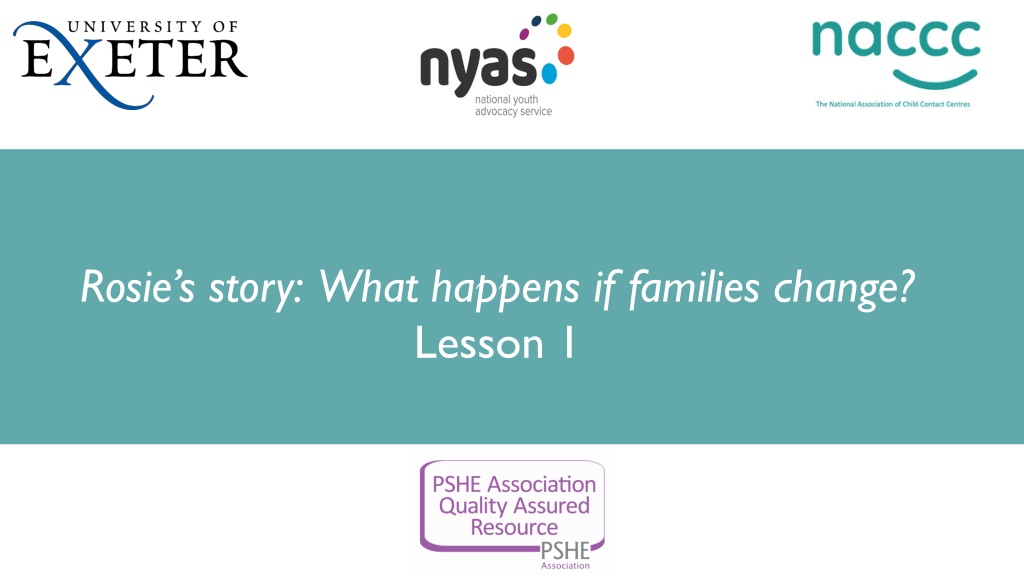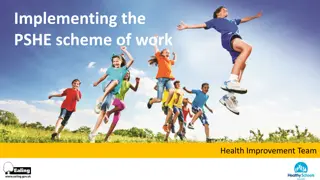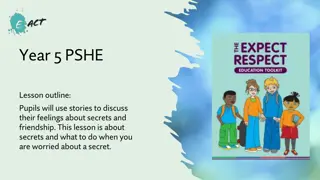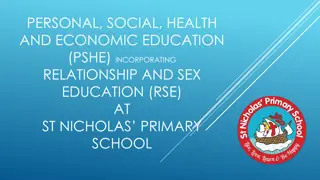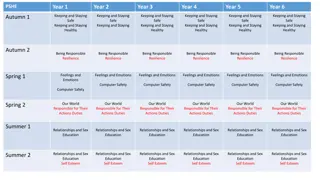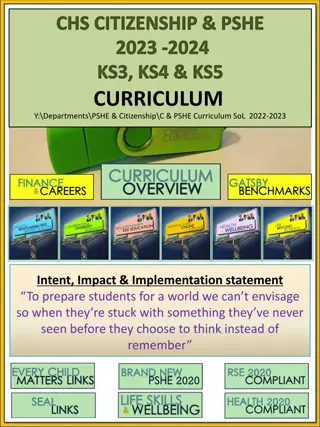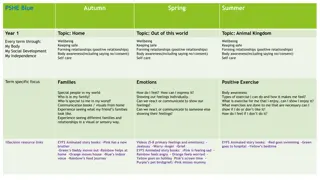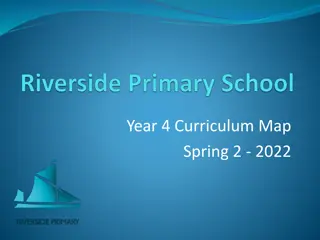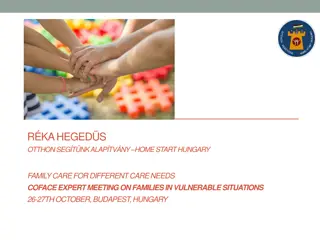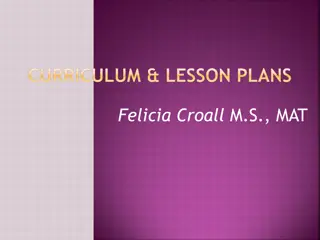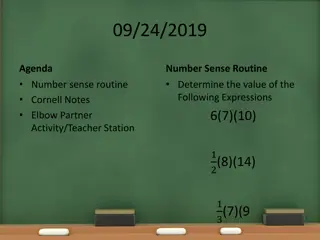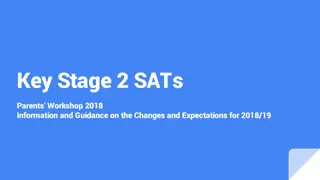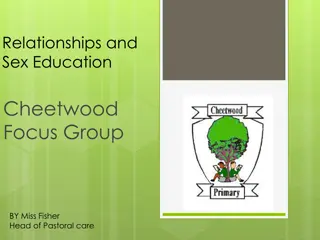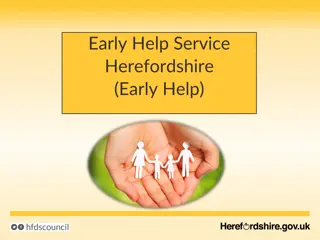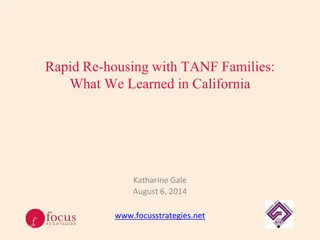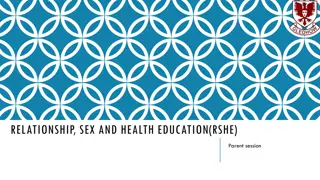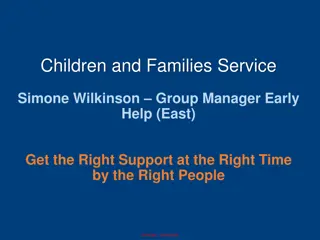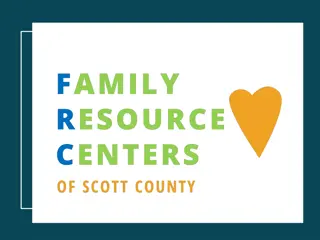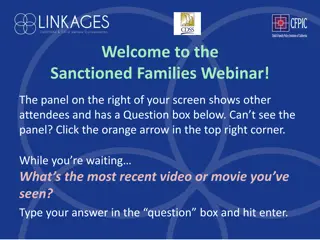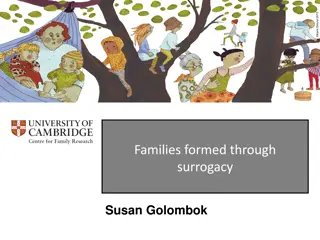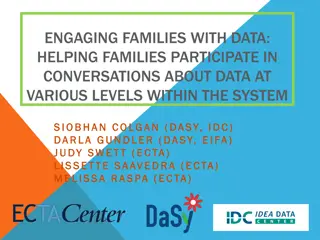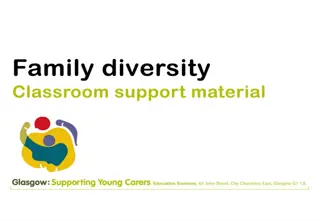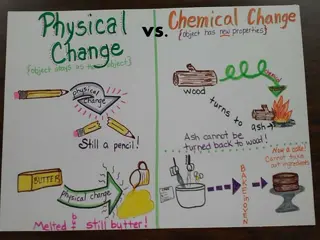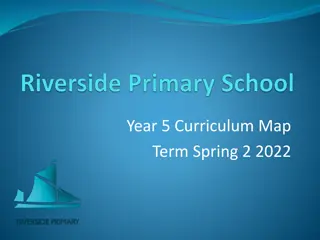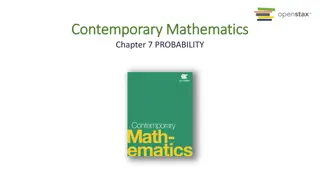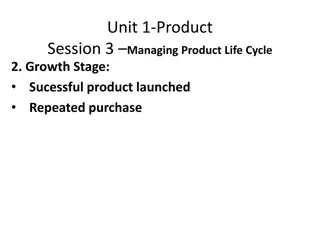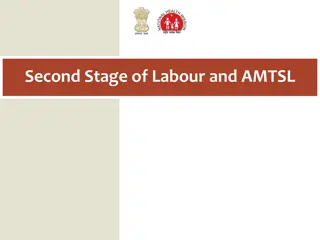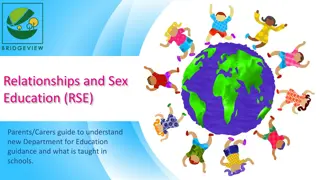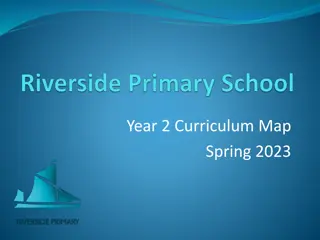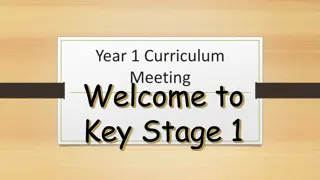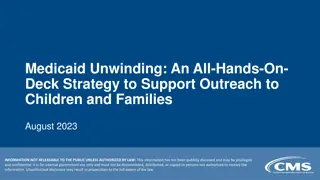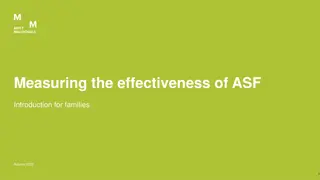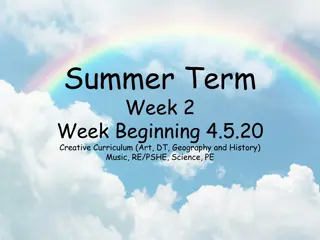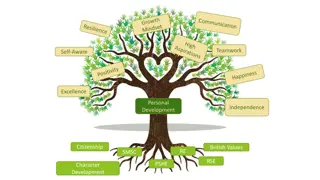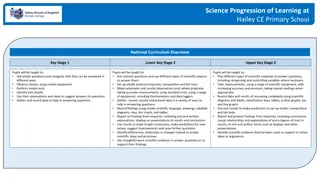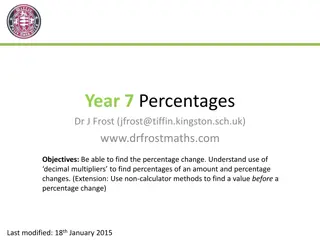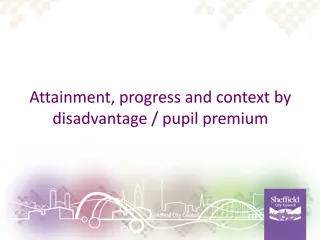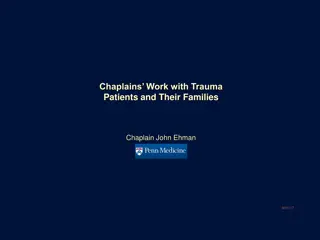Understanding Changes in Families: Lesson for Key Stage 2 PSHE
Explore the lesson plan for Key Stage 2 PSHE focusing on different family forms, emotions children experience during parental separation, and the support available. The interactive lesson involves activities on family dynamics, empathy, and understanding children's emotions in challenging family situations.
Uploaded on Oct 01, 2024 | 0 Views
Download Presentation

Please find below an Image/Link to download the presentation.
The content on the website is provided AS IS for your information and personal use only. It may not be sold, licensed, or shared on other websites without obtaining consent from the author. Download presentation by click this link. If you encounter any issues during the download, it is possible that the publisher has removed the file from their server.
E N D
Presentation Transcript
TEACHER SLIDE PREPARING TO TEACH Preparing to teach and using these slides: The slides headed teacher slides assist the teacher in setting up and running the lesson Slide 5 onwards are for the pupil-facing lesson Please read the Lesson Plan 1 Teacher Guide for Rosie's Story before teaching Have slides in presenter mode notes are available under each slide to aid teaching Support: and extension: activities are suggested where appropriate (icons on bottom right corner of slides) Resources: Post-it notes An ask-it-basket / question box for pupils to ask questions confidentially Save for the above, no additional teaching resources are needed to teach this lesson Timing: The lesson is designed to be taught over 45 minutes
TEACHER SLIDE PREPARING TO TEACH This two-part lesson plan for Key Stage 2 PSHE aims: in lesson 1, to outline different family forms, what family members do to show they care and the range of emotions children may go through when parents separate (Programme of Study 2020 KS2: R5-R9, H20, L4) in lesson 2, to outline the processes involved in divorce and separation, children s rights to have their voices heard in the process and how this can be achieved. Pupils learn about the help and support available to young people at this time (R9, H23, L2) DfE Guidance on RE states that RE in primary school teaching should: focus on teaching the fundamental characteristics of positive relationships, with particular reference to family relationships (para 54) be based on knowledge of pupils and their circumstances [with] no stigmatisation of children based on their home circumstances and recognising that families of many forms provide a nurturing environment for children (para 59) creates an opportunity to enable pupils to be taught about positive emotional and mental wellbeing (para 61)
TEACHER SLIDE LESSON OUTLINE AND TIMINGS Activity Description Suggested timing Introduction Baseline activity Ground rules, learning objectives and outcomes Pupils will suggest key words associated with family and the different people who can be part of a family 5 minutes 8 minutes What do families do for one another? Pupils will discuss on their tables what family members, or people that are special to them, do to make them feel loved and cared for 7 minutes Introducing Rosie Pupils will be introduced to Rosie; her home, school friend, teacher and hobby 2 minutes Who is in Rosie s family? In pairs, pupils will be asked to consider the people and groups that are important to Rosie and decide which are part of her family 6 minutes Rosie s feelings Pupils will consider how Rosie might have been feeling after her parents separate and how Rosie s friend Billy could support Rosie 10 minutes Endpoint assessment Further support Pupils will revisit and revise the baseline answers as appropriate Pupils will consider the further support available in school and online 5 minutes 2 minutes
GROUND RULES We will: not talk about anything personal about ourselves or others not talk about anything personal that others say in the lesson to anyone else we will listen to other s views and opinions respectfully, without judging them not ask anyone to answer a question if they don t want to, and we don t have to answer either talk about someone I know rather than using a person s name comment on what is said, not who has said it not ask personal questions or try to embarrass someone seek help in school/encourage friends to seek help if needed
ROSIES STORY: WHAT HAPPENS IF FAMILIES CHANGE? LESSON 1 Learning Objectives Pupils will learn: about different types of families and how they can change
ROSIES STORY: WHAT HAPPENS IF FAMILIES CHANGE? LESSON 1 Learning Outcomes: Pupils will be able to: describe the different ways in which people can be a family explain some of the ways that families show that they care for each other describe the range of emotions that young people may feel when parents separate and what friends can do to support them at that time
BASELINE ACTIVITY WHAT IS A FAMILY? What is a family? Who can be part of a family? What words do you think of when you think about a family?
WHAT DO FAMILIES DO FOR ONE ANOTHER? Help each other e.g. tie shoelaces What do families do for one another to show that they care? Make food for each other Play together e.g. in the park Go on holidays together Look after each other e.g. when ill Help with homework Help each other to clean house Praise each other when we do well Say they love each other/give hugs Say sorry when they have upset each other
MEET ROSIE Rosie s house Rosie s teacher, Mr Green Rosie s friend, Billy Rosie s Story- What happens if families change? Rosie likes to go bowling
WHO IS IN ROSIES FAMILY? Rosie s brother Jack and her sister Chloe Dad s partner Min and her son, Jonny Rosie s Uncle Mike, Mike s husband, Will and their adopted son, Ollie Rosie s dog, Max Rosie s neighbour Tom and Tom s family
ROSIES FEELINGS: HOW MIGHT ROSIE HAVE FELT WHEN HER PARENTS SEPARATED? 1) It s not happening! Not wanting to believe that her parents are separating It s not happening! 2) Why is this happening? Frustrated, confused and angry that this is happening to her I'm sad it s happened but I m ok Why is this happening? 3) How can I stop this happening? Thinking this is her fault/changing her behaviour to try to stop the separation Feelings 4) I don't want this to happen! Sad, wanting things to go back to how they were I don t want this to happen! How can I stop this happening? 5) I'm sad it's happened but I m ok: Coming to terms with the changes in her family
ENDPOINT ASSESSMENT ACTIVITY What is a family? Who can be part of a family? What words do you think of when you think about a family?
FURTHER HELP AND SUPPORT IN SCHOOL For further help and support in school contact: your form teacher/ PSHE teacher your Head of Year the pastoral support team
FURTHER HELP AND SUPPORT OUT OF SCHOOL The National Association of Child Contact Centres (NACCC) https://naccc.org.uk (tel: 01159 484557) The National Youth Advocacy Service (NYAS) https://NYAS.net (tel: 0808 8081001) Relate https://www.relate.org.uk (tel: 300 0030396) Childline The Child and Family Court Advisory and Support Service (Cafcass) https://www.cafcass.gov.uk (tel: 0300 456 4000) https://www.childline.org.u k (tel: 0800 1111)
